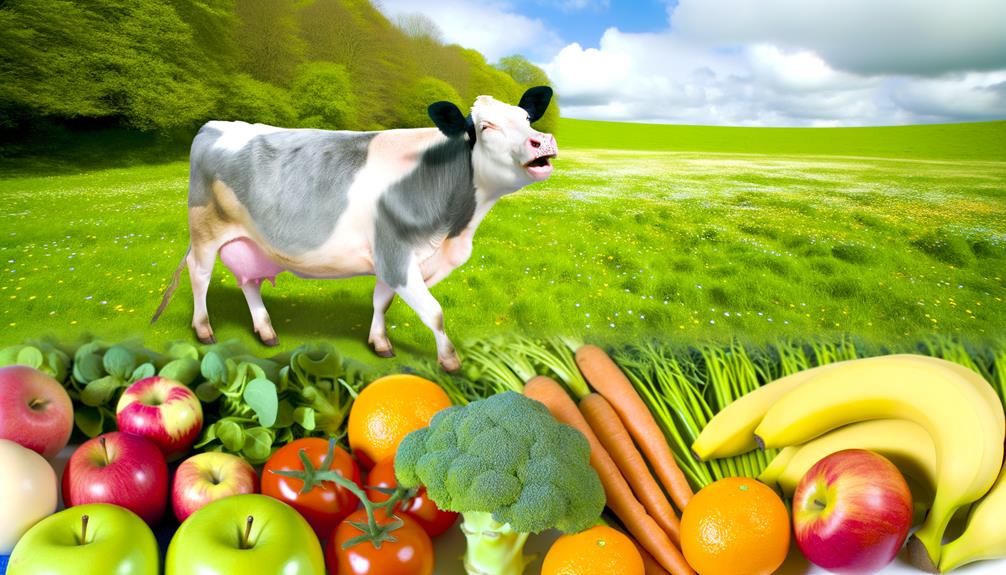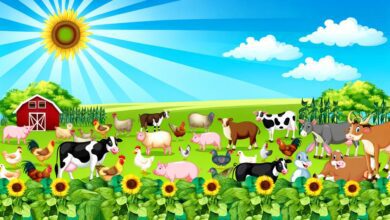As the saying goes, “You are what you eat,” and choosing a plant-based diet puts you at the heart of a peaceful protest against cruelty. You’re not just selecting foods for their health benefits; you’re taking a stand for ethical treatment of animals and aligning with cultures that have long revered non-violence. By embracing veganism, you’re expressing solidarity with global movements that advocate for animal rights and environmental stewardship. This choice isn’t merely about personal well-being; it’s a culturally-informed statement that resonates with a collective consciousness seeking to harmonize human actions with the greater good. As you consider the ripple effects of your dietary decisions, imagine the impact of a world where your plate becomes your pledge for compassion—how far could such a transformation reach?
Key Takeaways
- Plant-based diets uphold animal rights and oppose the injustices in animal agriculture.
- Choosing a plant-based lifestyle supports the longevity of the planet’s resources and ensures food security for future generations.
- Plant-based diets reduce the risk of chronic diseases by avoiding saturated fats and cholesterol found in animal products.
- Switching to a plant-based diet can significantly reduce the environmental impact of food choices, including greenhouse gas emissions and land and water usage.
The Ethical Argument
Adopting a plant-based diet is a powerful stand against animal cruelty, embodying a commitment to compassion and ethical responsibility. When you forgo animal products, you’re not just making a personal choice; you’re upholding animal rights and taking a stance against the injustices in animal agriculture. Factory farms often subject farmed animals to deplorable conditions, confining them to battery cages or overcrowded spaces. These environments not only strip animals of their dignity but also lead to painful conditions like mastitis in the dairy industry.
You’re more than a bystander; you’re an advocate for those without a voice. By rejecting the exploitation that animals used for food endure, you contribute to a cultural shift towards more ethical and humane practices. This ethical argument isn’t merely about diet; it’s about fostering a world where justice and kindness prevail.
Moreover, embracing a plant-based lifestyle aligns with a health-conscious approach that benefits both you and the animals. You reduce your exposure to toxins typically found in meat and dairy products, promoting a happier, healthier life. So, when you choose plants over meat, you’re not just serving yourself; you’re serving the greater good.
Health Benefits Uncovered
By choosing a vegan lifestyle, you’re not only shielding nearly 200 animals each year from suffering but also fortifying your health against heart disease, cancer, diabetes, and high blood pressure. The health benefits uncovered when adopting a plant-based diet are significant and multi-faceted. Here’s what you need to know:
- Reduced Risk of Chronic Diseases: Plant-based diets are rich in fiber, vitamins, and minerals which help in lowering the risk of developing chronic diseases. By limiting meat consumption, you’re avoiding saturated fats and cholesterol found in animal products that contribute to these health issues.
- Enhanced Digestive Health: High fiber content in plant-based foods supports a healthy gut microbiome. This can lead to better digestion and a decreased chance of food poisoning, a risk often associated with eating meat.
- Weight Management: Vegan and vegetarian diets are typically lower in calories and can help in maintaining a healthy weight, thus reducing the risk of obesity-related conditions.
Embracing veganism means you’re part of a compassionate culture that honors life in all forms. You’re choosing kindness over cruelty while simultaneously taking a stand for your well-being. It’s a wholesome way of living that nourishes not only the body but also the soul.
Environmental Impact Reduction
While safeguarding your health with a plant-based diet, you’re also contributing to the preservation of our planet by significantly reducing the environmental impact of your food choices. You’re taking a stand against the high greenhouse gas emissions that are a product of factory farming—a leading driver of climate change. By opting out of animal products, you’re not just advocating for animal rights, but you’re also addressing global warming head-on.
Adopting a plant-based diet means you’re using less land and water, which are scarce resources, and supporting sustainable practices that are critical in the face of our climate crisis. The environmental impact reduction associated with plant-based eating isn’t marginal; it’s profound. You’re helping to prevent deforestation, reduce air pollution, and combat water pollution—all issues that are exacerbated by traditional dairy and meat production.
Switching to a plant-based lifestyle could even be more effective in shrinking your carbon footprint than if you were to switch to a greener car. This ethical choice resonates with a deep commitment to not only personal health but also to serving our global community by fostering a healthier, more sustainable world.
Global Food Justice
In striving for global food justice, you contribute to a fairer distribution of food resources by embracing a plant-based diet. By opting out of consuming animal flesh and products raised for meat, dairy, and egg production, you take a stand for not just animal rights, but also for the equitable access to food for all humans.
Here’s how your food choices make a difference:
- Resource Redistribution: Animal agriculture requires vast amounts of grain, water, and land. Vegans reported consuming fewer resources, meaning more can go towards feeding humans directly.
- Environmental Preservation: By reducing the strain on the environment, a plant-based lifestyle supports the longevity of our planet’s resources, ensuring food security for future generations.
- Ethical Model: You set an example of compassion, showing that all living beings, including those raised for consumption, deserve ethical treatment.
Food justice is deeply intertwined with cultural respect, health awareness, and the desire to serve others. As you choose vegan options, you align your actions with a world where no one goes hungry because food distribution is based on need, not profit. Your commitment reverberates through the global community, offering a path towards a more just food system.
Transformative Lifestyle Shifts
Embracing a plant-based diet is a transformative lifestyle shift that aligns your daily choices with a commitment to compassion, sustainability, and personal health. Opting for vegan food isn’t just about what you eat—it’s a profound stand for animal rights and a protest against cruelty. By refusing to consume products from animals selectively bred to produce more milk or meat and confined to small spaces, you help end the exploitation of sentient beings like the dairy cow.
The reasons to go vegan extend beyond ethics. You’re also choosing a path that’s kinder to our planet. The rapid growth of the plant-based movement reflects a cultural awakening, understanding that sustainable eating preserves resources for future generations.
Moreover, the positive impacts on your personal health are considerable. A vegan diet is rich in nutrients and has been linked to lower risks of heart disease, cancer, and diabetes. It’s a health-conscious choice that can lead to better well-being, weight management, and vitality.
Today, delicious vegan alternatives abound, ensuring that your culinary experiences remain diverse and enjoyable. This change is more than a diet—it’s one of the transformative lifestyle shifts that empowers you to live ethically, healthily, and responsibly.
Frequently Asked Questions
How Does Veganism Reduce Animal Cruelty?
You’ll embrace compassion ethics and cruelty-free living by rejecting industrial farming and acknowledging animal sentience. Veganism’s dietary impact addresses welfare concerns, promoting ethical consumption and reducing suffering through conscious, culturally-informed, health-conscious choices.
Why Would You Choose a Plant-Based Diet?
You’d choose a plant-based diet for its health benefits, like better heart health and weight management, while also supporting sustainable living and taking a moral stance against climate change and environmental impact.
Why Do Vegans Protest so Much?
You protest as vegans to raise cruelty awareness through direct action and peaceful protest. Your compassionate choices reflect a moral stance, demonstrating lifestyle politics and ethical consistency in animal advocacy and vegan activism.
What Ethical Reasons Might Someone Have for Choosing a Vegan Diet?
You might choose a vegan diet for ethical reasons, feeling a moral obligation to practice ethical consumption. It’s about animal empathy, suffering reduction, and respecting sentience, all part of a compassionate, responsible, and integrity-driven lifestyle.







